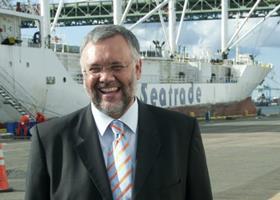
Some of the regions in the northern part of South Africa, which have been excluded from shipping their citrus fruit to the US in the past because they have been classified as black spot regions, are hopeful that the country's authorities will lift these restrictions soon.
The optimism stems from reports in the US that authorities will have to make concessions with relation to areas where black spot is prevalent, because the disease is now accepted as part and parcel of the industry in Florida.
'If the Florida fruit is able to move within the US, there is little justification for restricting imported fruit from black spot regions in South Africa,' one source commented.
Sources say that negotiations based on equivalence of fruit movement are underway, but point out that the process of application and approval may still take some time.
At present only citrus fruit from the Western Cape and parts of the Northern Cape region qualifies for exports to the US. Efforts to clear other areas in the north have been the subject of long debate and have so far been unsuccessful.
News of the impending breakthrough came at a time when Gerrit van der Merwe, chairman of the Western Cape Citrus Producers' Forum (WCCPF), received a delegation of Members of Congress, regional elected officials, importers, and business leaders led by the South African Ambassador to the United States, Ebrahim Rasool, at the Holt Marine Terminals, Gloucester City, near Philadelphia in New Jersey this week.
The South African Ambassador and 50 guests visited Philadelphia as the conventional reefer vessel, Sea Phoenix, offloaded some 24,000 cartons of oranges and clementines bound for US supermarkets.
'This is an exciting moment for us,' said van der Merwe, a co-host of the event. 'Since we began shipping citrus to the US in 1999, we have built a programme from some 50 tonnes shipped then to more than 40,000 tonnes this year. This programme has helped build a category of summer citrus in the US where before, citrus in the summer months was less available.'
Ambassador Rasool, former premier (governor) of South Africa's Western Cape Province, pointed out that the trade preferences the US extends to African countries under the African Growth and Opportunity Act (AGOA) are underpinning the emergence of a new middle class of consumers in Africa, 300m strong, spurring demand for American goods and services.
'There is growing empirical evidence that AGOA is a win-win proposition. As access to the US market stimulates growth in Africa, this is turn generates demand for imports from the US and elsewhere, creating jobs and opportunities for US exporters in a virtuous cycle,' the Ambassador said.
'We are pleased the Ambassador chose to recognise our programme,” said van der Merwe. 'Itrepresents many thousands of hardworking families and workers all along the supply chain from South Africa and across the ocean to here in New Jersey and beyond.'
With seven conventional reefer vessels having already sailed from Cape Town, the shipment of South African navels will start tapering off with the loading of the next two vessels. The next conventional vessel, Green Honduras, loaded in Cape Town last week and will be followed by another three vessels before the end of the season. The last two vessels of the season will carry mainly Midknight Valencias.



